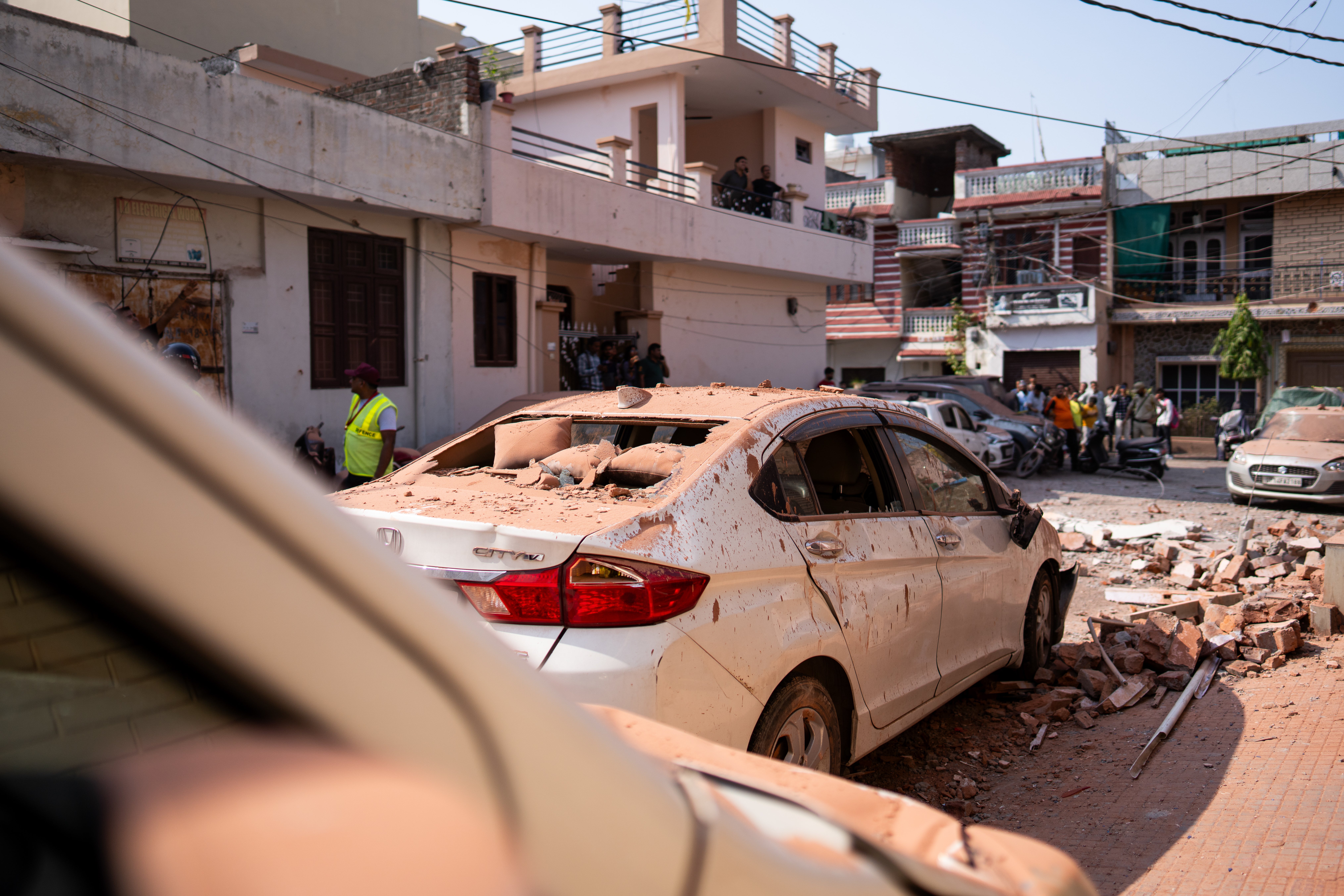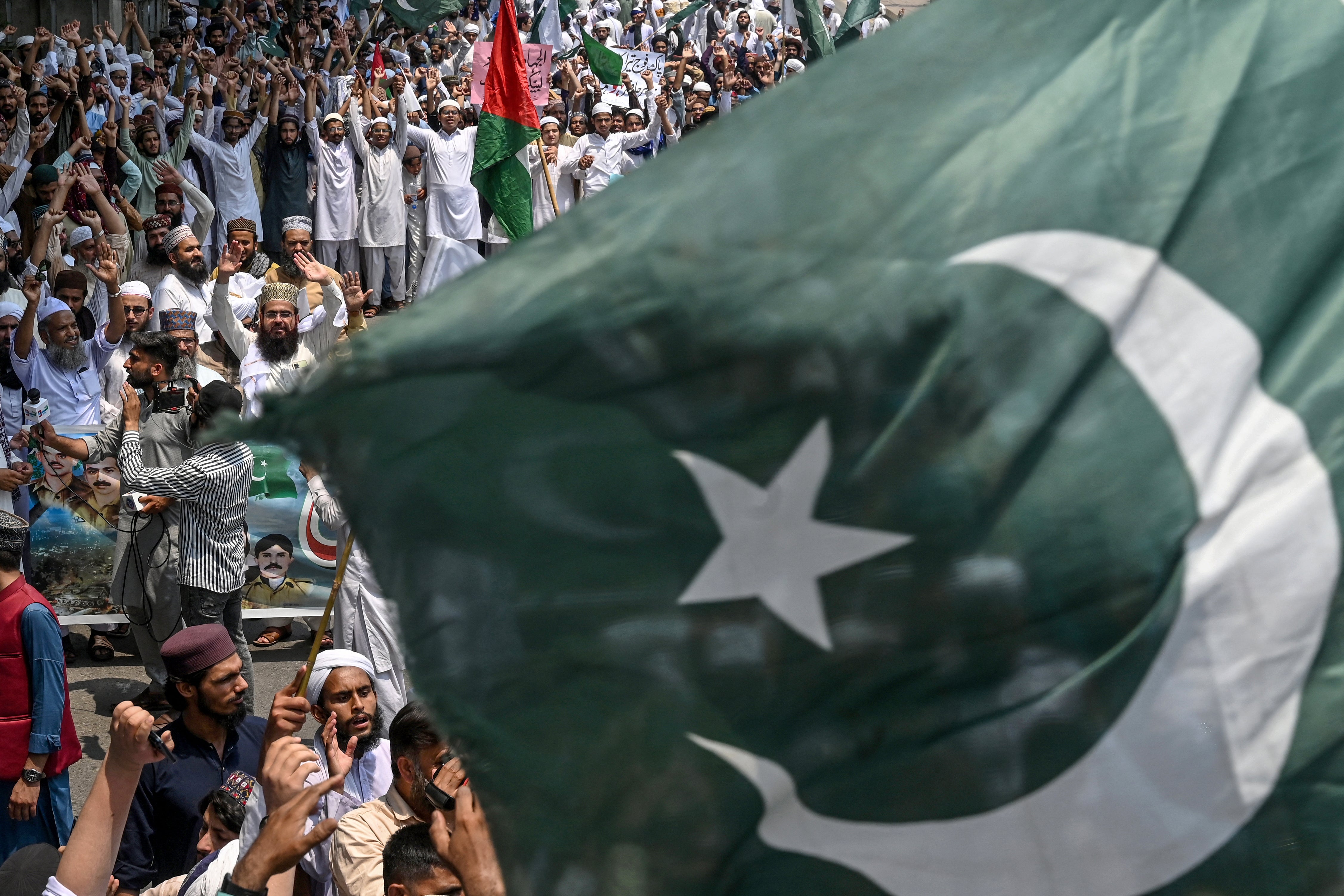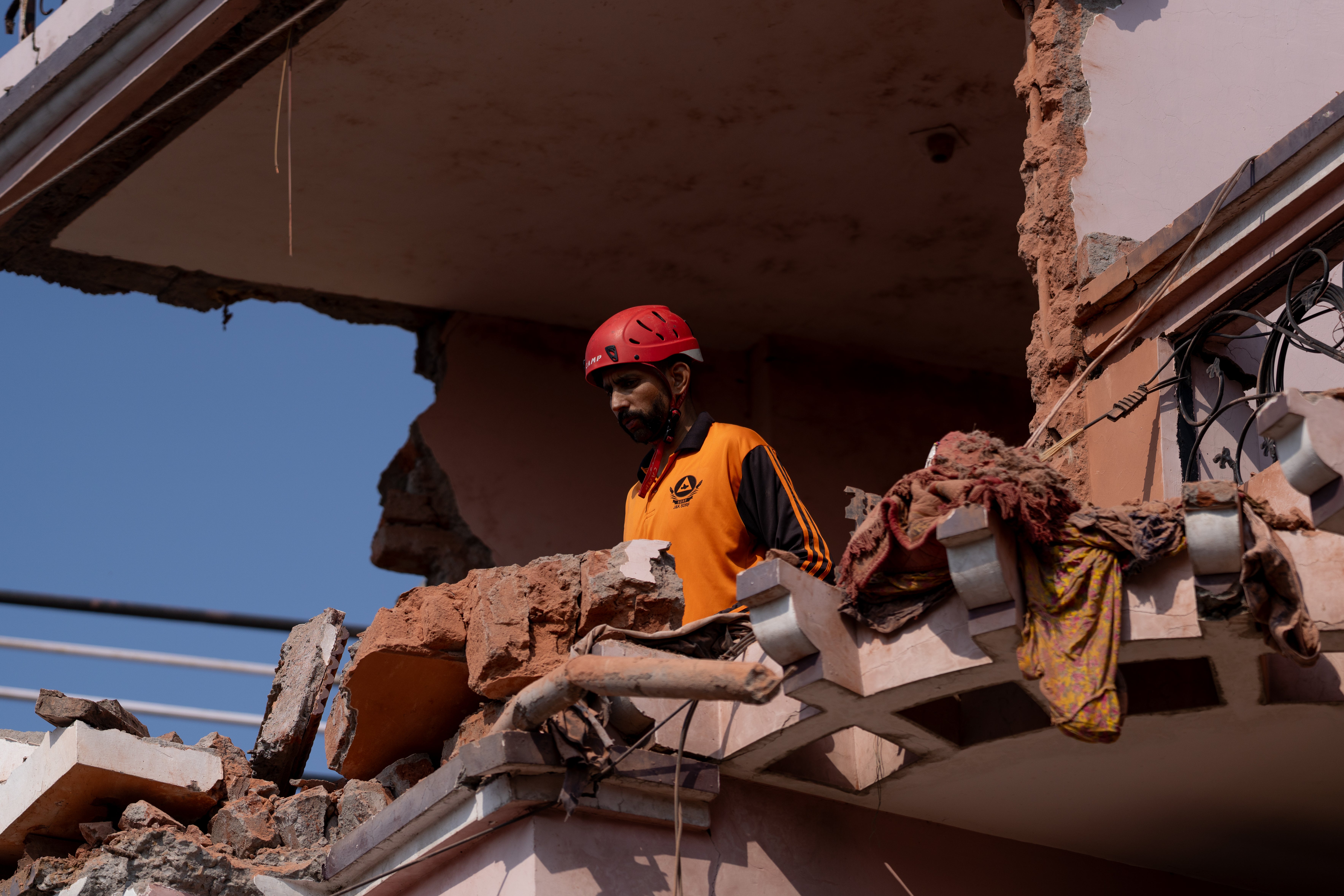India and Pakistan ceasefire in jeopardy as blasts heard hours after deal announced
Donald Trump had announced agreement after intense talks
India and Pakistan reached a ceasefire on Saturday afternoon, seeking to end the most serious military confrontation between the nuclear-armed rivals in decades, but reports of explosions in Indian-administered Kashmir after the deal revealed the situation’s fragility.
Hours after the ceasefire was announced by Donald Trump, blasts were heard in Srinagar city in Kashmir. Projectiles and flashes were also seen in the night sky over Jammu to the south, authorities and residents said.
India’s foreign secretary, Vikram Misri, accused Islamabad of breaching the deal while Pakistan’s foreign ministry insisted they "remain committed to the ceasefire" and blamed Indian forces for initiating a violation.
The ceasefire came after India and Pakistan accused each other of conducting missile strikes on major military targets on Saturday, with many fearful it would escalate into all-out war.
The fighting this week was first inflamed on Wednesday after Indian missiles reportedly struck nine sites in Pakistan, killing 31 people. India said the strikes were in response to an attack in Indian-administered Kashmir last month in which 25 Hindu tourists and a guide were killed. India blamed the attack on gunmen backed by Pakistan, an accusation Islamabad denied.
Just as the situation seemed to be spiralling out of control, the US president announced that a ceasefire had been agreed.
“After a long night of talks mediated by the United States, I am pleased to announce that India and Pakistan have agreed to a FULL AND IMMEDIATE CEASEFIRE,” Mr Trump wrote on his Truth Social platform.
“Congratulations to both Countries on using Common Sense and Great Intelligence.”

This was soon confirmed by Indian and Pakistani ministers. Pakistan’s foreign minister Ishaq Dar told Geo News that three dozen countries had been involved in the diplomacy that secured the “full-fledged” and “not partial” ceasefire.
The Indian foreign secretary said senior military officials of the two countries had spoken to each other and agreed that all fighting would stop at 5pm local time, without using the word “ceasefire”.
Mr Misri said the officials would speak to each other again on Monday.
Before the ceasefire announcement, military jets and missiles lit up the skies through the night across Indian-administered Kashmir and the state of Punjab, with residents reporting deafening blasts in cities including Amritsar, Jammu and Srinagar.

Shelling by Pakistani forces killed at least five people in Jammu and emptied out many villages along the border as people fled to safer areas, officials said.
“Jammu city has never been hit before,” Rajeev Gupta, 60, a resident whose brother was wounded in shelling, told Reuters. “Never thought we would be hit like this.”
In Srinagar, residents said explosions overnight felt unlike previous drone attacks and were concentrated around military installations.
Mohammed Yasin, a resident, told the Associated Press his children were shaken awake by the blasts. “They started crying,” he said.
In Pakistan, officials said Indian missiles had targeted three air bases – Nur Khan in Rawalpindi, Murid in Chakwal and Rafiqui in Jhang district – early on Saturday. A military spokesperson said air defence systems intercepted most of the missiles and no air force assets were damaged.

US secretary of state Marco Rubio said he and vice president JD Vance had engaged with prime ministers Narendra Modi and Shehbaz Sharif, Indian foreign minister S Jaishankar and Pakistani army chief Asim Munir, and the respective national security advisers over the course of 48 hours.
In a post on X, Mr Rubio commended Mr Modi and Mr Sharif on the deal, which he revealed included not only an immediate ceasefire but also the start of talks on "a broad set of issues at a neutral site”.
India and Pakistan have been locked in a dispute over Kashmir since the end of British colonial rule in 1947. Hindu-majority India and Muslim Pakistan both rule Kashmir in part but claim it in full.
They have gone to war three times, including twice over Kashmir, alongside numerous smaller outbreaks of fighting. India blames Pakistan for an insurgency in its part of Kashmir that began in 1989 and has killed tens of thousands. It also blames Pakistani Islamist militant groups for attacks elsewhere in India.
Pakistan rejects the charges. It says it only provides moral, political and diplomatic support to Kashmiri separatists.
Join our commenting forum
Join thought-provoking conversations, follow other Independent readers and see their replies
Comments
Bookmark popover
Removed from bookmarks